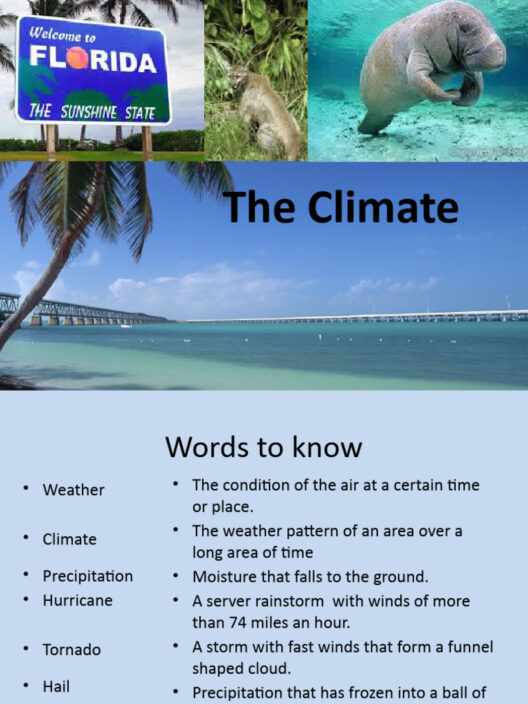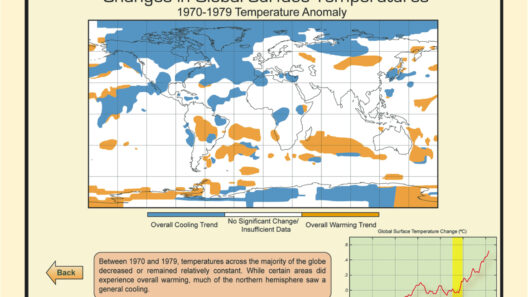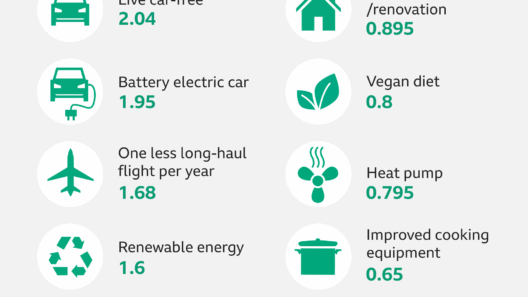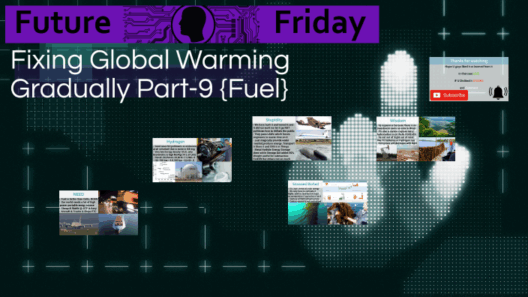In recent years, the narrative surrounding global warming has often resembled a double-edged sword. As the planet’s thermometer continues to rise, one might wonder: Is global warming getting better? This inquiry begs an exploration into the multifaceted dimensions of climate change and the progress we may—or may not—be making in our collective quest for a more sustainable future. Like an intricate tapestry, the fight against climate change is woven from various threads, each representing a unique challenge and opportunity.
The enormity of global warming presents a daunting challenge. Rising temperatures, erratic weather patterns, and melting ice caps paint a vivid picture of an earth in distress. The weight of scientific evidence demonstrates that human activities—particularly the burning of fossil fuels—have significantly heightened concentrations of greenhouse gases. Yet, amidst this tumultuous backdrop, glimmers of hope emerge. This dichotomy necessitates a closer examination of our advancements, or lack thereof, in combating the encroaching specter of climate change.
Shifting the Paradigm: The Role of Policy and Governance
Policy frameworks form the bedrock of effective climate action. Numerous countries have embarked on ambitious strategies to curb emissions and transition to renewable energy. The Paris Agreement stands as a landmark example, where nations pledged to limit global temperature rise to well below 2 degrees Celsius. Such commitments signify an important shift—a collective recognition of humanity’s role in shaping the planet’s future.
Yet, the threat of political inertia looms large. Legislative actions, buoyed by public awareness, have instigated crucial changes; however, this momentum can be fragile. Businesses often find themselves caught in the crossfire between regulatory compliance and profitability. The reality remains that while some nations fervently pursue ecological initiatives, others lag behind, tethered to outdated energy models. This patchwork of progress creates an uneven playing field, where the burden of climate change continues to weigh heavily on vulnerable populations.
Furthermore, the concept of “climate justice” emerges as a crucial consideration in this policy dialogue. Marginalized communities often face the brunt of environmental degradation, their voices drowned in a cacophony of political and corporate interests. Promoting equitable policies that address inequality while mitigating climate impacts is imperative. Indeed, empowering these voices can amplify collective action and fuel more inclusive, impactful solutions.
Greening the Urban Landscape: Innovations in Technology
As the inevitable march of urbanization transforms our landscapes, cities grapple with the dual challenges of climate adaptation and mitigation. Innovation in technology has taken center stage, offering pioneering solutions to combat climate change locally. Smart cities harness data analytics to optimize energy consumption, streamline waste management, and improve public transportation systems, exemplifying how urban centers can forge sustainable futures.
Moreover, green infrastructure emerges as a beacon of ecological urban design. Rooftop gardens, urban forests, and permeable pavements are gaining traction, proving that sustainability can seamlessly intertwine with aesthetics. By treating cities as interconnected ecosystems, we can cultivate urban environments that promote biodiversity while enhancing resilience against climate-related adversities.
However, technology alone cannot rectify a planet strained by anthropogenic pressures. The real challenge lies in the equitable distribution of these innovations. Inequities persist, with marginalized communities often relegated to the periphery of technological advancements. Thus, the question emerges: are cities genuinely becoming more resilient, or merely dressing up old infrastructures in new, green coats?
Education and Advocacy: Igniting the Flame of Awareness
Education serves as a formidable ally in the battle against climate change. As the saying goes, knowledge is power. By fostering an informed populace, individuals are better equipped to comprehend the intricacies of climate change and advocate for sustainable practices. Education campaigns aimed at all demographics seek to demystify topics like carbon footprints and renewable energy, engendering a culture of environmental stewardship.
Moreover, grassroots movements have gained momentum, amplifying the urgency of addressing climate change. These movements not only influence public opinion but also exert pressure on governments and corporations to take decisive action. The voices of youth activists reverberate through digital platforms, demanding accountability and change from decision-makers. This generational shift highlights the transformative potential of collective action, proving that it is possible to ignite a national dialogue on climate change.
Yet, despite the strides made in environmental education and advocacy, misinformation continually threatens to undermine progress. The proliferation of pseudo-scientific claims and climate denialism represents significant roadblocks. As such, combating these narratives necessitates a concerted effort by educators, scientists, and advocates to uphold the integrity of climate science and steer the conversation toward productive solutions.
Conclusion: A Pivotal Moment on the Climate Timeline
As we assess whether global warming is getting better, we must navigate through both accomplishments and setbacks. The realm of climate action is complex; it is a landscape dotted with both triumphs and trials. The global commitment to climate action remains vigorous, yet perilous political landscapes and socioeconomic inequities persist.
Embedding sustainability into the very fabric of our societies demands continuous effort, creativity, and inclusivity. The progress we have made thus far serves as a flickering torch in the daunting darkness of climate change. As we peer into the future, the question remains: Will we collectively rise to meet the challenges ahead, or allow the flame of hope to extinguish? The answer lies in our hands—a community bound by a shared responsibility for our planet, capable of rewriting the narrative of global warming towards a more positive trajectory.






